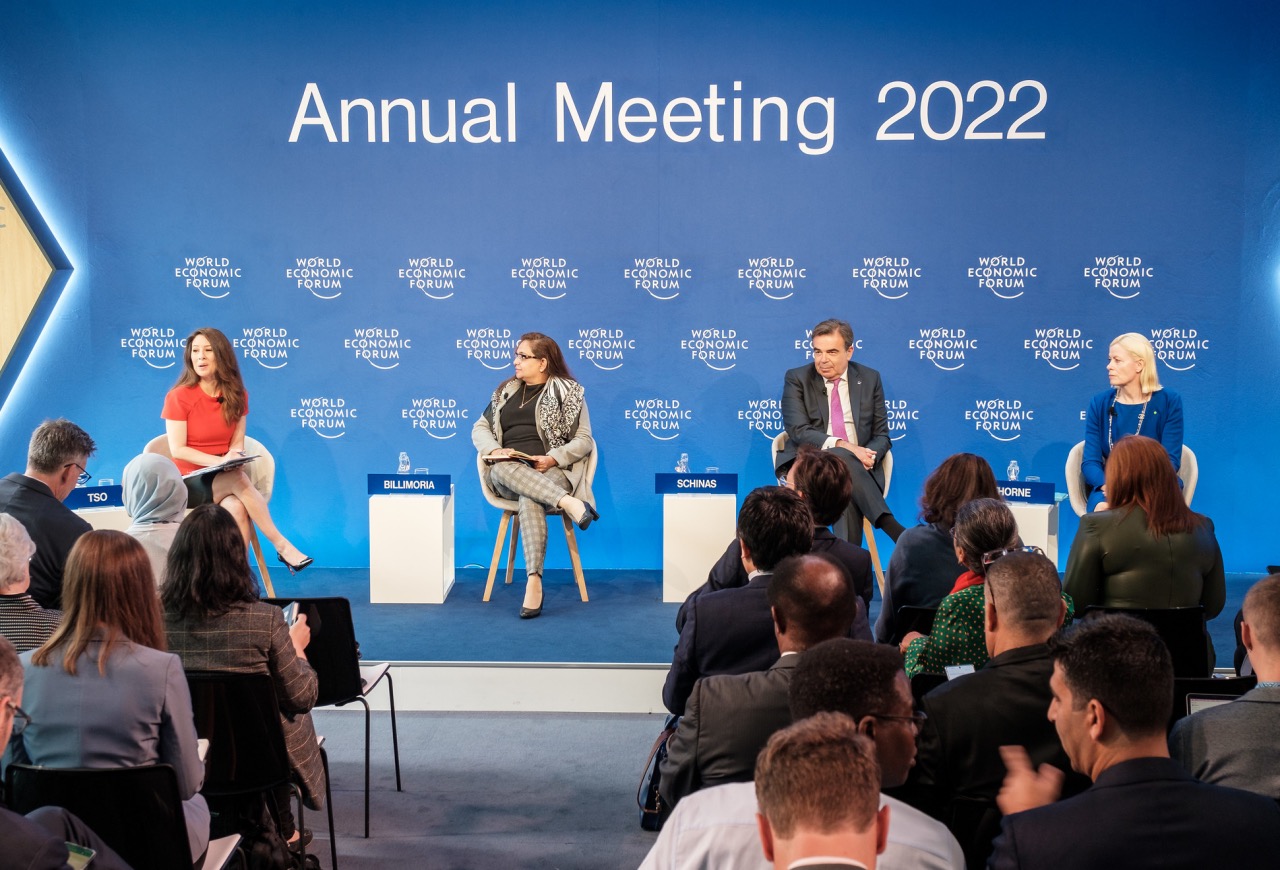A report launched this week under the auspices of the World Economic Forum 2022 hopes to serve as a starting point to reduce common barriers preventing the advancement of the social economy

In brief
- The social economy represented 7% of global GDP in 2017. In the EU alone, there were 2.8 million social enterprises in 2020, employing 13.6 million people
- Despite its importance, a number of barriers, including limited visibility and restricted access to markets, are preventing social economy actors from unlocking their full potential
- A report published this week during the World Economic Forum highlights practical ways to advance the social economy
Social economy actors, including associations, foundations, not-for-profit organisations and social enterprises, have a crucial role to play in delivering inclusive and sustainable development.
However, there are still a number of barriers preventing these organisations from realising their full potential. While these vary across the world, common barriers include limited visibility, lack of a supportive legal and regulatory frameworks, and restricted access to markets.
A report published this week under the auspices of the World Economic Forum 2022 (WEF) in Davos, Switzerland, highlights practical ways to advance the social economy.
The ‘Unlocking the Social Economy: Towards an inclusive and resilient society’ report is the result of a collaboration between WEF’s sister organisation Schwab Foundation for Social Entrepreneurship, Catalyst 2030, Euclid Network and Motsepe Foundation, in partnership with Deloitte.
According to the report, the social economy represented 7% of global GDP in 2017. In the EU alone, there were 2.8 million social enterprises in 2020, employing 13.6 million people and representing up to 9.9% of the employment rate in some countries.
To unlock the full potential of the social economy, two main shifts are required, the report says. The first shift relates to the need for advancing the social economy by developing a supportive ecosystem of “coherent policies and public-private collaboration”. The second shift is about leveraging the experience of the social economy to address structural challenges created by “the purely profit-driven economy”.
Collaboration is key
Speaking at a panel discussion in Davos, representatives of two organisations involved in the report, Catalyst 2030 and Deloitte, and the European Commission discussed the road ahead for the social economy.

Jeroo Billmoria, founder of the One Family Foundation and co-founder of Catalyst 2030, said: “If we really want to be able to achieve the SDGs, we need to collaborate and work together.”
Catalyst 2030 describes itself as “a global movement of social change innovators”. It comprises NGOs, social entrepreneurs, intermediaries, funders and other social change innovators. The movement has already impacted the lives of 2 billion people, according to Billmoria. “But if we are working together and the social economy becomes more mainstream, we could actually reach all the 8 billion people and make sure that everyone has a good quality of life, the SDGs are achieved and there is an equitable society. That’s what the social economy is to me.”
She added: “What we really need is creating a social enterprise ecosystem in every single country of the world and I think that is what we are working towards.”
Government initiatives and policy will play a key role in the further development of the social economy. At EU level, the European Commision’s Social Economy Action Plan (SEAP), introduced at the end of last year, has helped position the social economy as a vital pillar of the EU’s post-COVID recovery strategy. The plan aims to enhance social investment and support social economy actors to scale and create jobs.
Speaking at the same panel discussion at the WEF, European Commission’s vice president Margaritis Schinas, said: “Social economy is a new chapter that we need to read through and exploit fully.”
Schinas explained that although the SEAP has a 7-year horizon, a number of initiatives are already being implemented, including the introduction of a youth entrepreneurship programme. “Most of our youth in Europe prefers salaried employment and we want change that. We want to foster entrepreneurship from young age,” he said.
Schinas also mentioned plans to establish a single gateway for all social economy actors across member states which will act as “a one-stop shop where one can access everything that is available funding, regulatory environment, initiatives and best practice”. He added: “This is the beginning of a new era, and we will be part of it.”
Sharon Thorne, global chair at Deloitte, said: “The world is facing multiple threats and challenges. Disruption is the new normal and I think all businesses have to step up and take action. But also we have to expand the social economy – they have proved they can put purpose before profit and make real social impact very succesfully.”
Thorne called for businesses and social enterprises to work together and learn from each other: “I am a big believer in the importance of diversity of thought, that we can learn from others who think differently and do things differently. And I think that if you put social economy actors and the private sector together there is a huge opportunity for them to learn and benefit from one another.”






